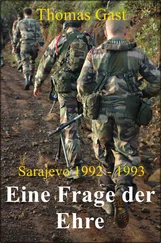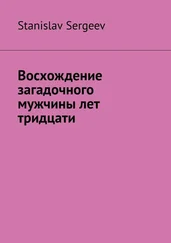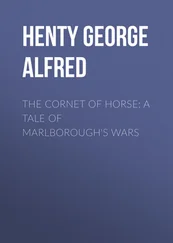Each postponement brought a kind of relief but made the next last night even more difficult to bear. The sort of trivia that means nothing to ordinary people made the Jurišićs emotional. They absorbed dozens of memories and carried them in their souls like a heavy burden — it was much heavier than any suitcases or bags. Every day grandma Jurišić squeezed another little trinket into the cases for the journey: it was the most recent thing to provoke tears. Packed between the coats and shirts and shoes were lids from sugar bowls, spoons, used lighters, instructions for the freezer, useless junk that was only valuable at that particular moment because it was part of what one thinks of as home, the part that isn’t needed on a journey.
The convoys were usually cancelled only after the passengers had gathered at the bus station. As a result, everybody had to drag the suitcases back home, running the gauntlet of neighbors looking out of their windows. But the Jurišić family was always smiling by that time. Only the little boy was unhappy, because yet again the adventure had failed to begin. The old man would open all the windows, as if the family was returning from a long journey, perhaps from its summer vacation, and he’d once again try to fix the permanently broken coffee grinder. The old woman used to complain that the Bosnian government wasn’t helping people to escape from the war zone when even the Chetniks were running convoys. Those no-good politicians were all the same, she’d say. The old man would put the coffee grinder down ceremoniously on the table and say, “Nothing’s the same and nobody’s the same — but you’re still the same old fool.” His wife would be quiet for five minutes and sulk for a little longer, then he’d go over to her, put his arms around her waist like he used to fifty years ago, and tenderly whisper, “We’ll go to the other world like the Omanovićs.” The Omanovićs were the old married couple from downstairs. They had been killed the previous year by a Serb mortar while they were listening to the news on the radio. The old woman would look at her husband and gently push him away, the way you push men away when they come out with silly love talk.
On the eighth attempt, the convoy did manage to get through, leaving the town behind; it was like somewhere utterly unattainable. The prospect of an unbesieged world stretched out before the Jurišićs. The old people silently stared into space. The daughter showed the grandson an oak, saying, “That’s an oak!” or a pine tree (“That’s a pine tree!”), or a cow, saying, “That’s a cow!” or the sea (“That’s the sea!”). The boy pressed his nose against the window, smearing circles on the glass.
In Split she said to him, “This is Split.”
He asked, “But where’s Sarajevo?”
The old man spoke for the first time. “Sarajevo is where it’s always been,” he said, “but we’re no longer there!”
The old woman began to cry again. The daughter dropped the bags and shouted angrily at him. The boy gave the others a puzzled look and asked for an ice cream.
Most of the things they had packed were useless, or at least the junk was. The Jurišićs laid it out on the floor of the room and wondered why they had brought it with them. The very next day they remembered all the things they should have brought instead. The trinkets they had left in Sarajevo were worth their weight in gold, unlike the trinkets packed in the suitcases. But it was impossible to go back and fetch anything. The familiar world had disappeared, and there was no help, at least not for those who remembered what it was like.
In fact the story about the Jurišićs has a happy ending. They are still alive — yes, all of them — and nothing unusual has befallen the family, not even anything I could use as a punchline. It was only worth putting down on paper because of all the wakeful nights in unfamiliar hotel rooms that bring you closer to home, to your own world. Calmly pay for your hotel room and go to the bar for another coffee. Exchange a few words with the barman and then relax. . You are not one of those people who are constantly followed from one part of town to the other by a small yellow dog. There is no point in going back and trying to stroke the dog, because it would only run away. In any case, it always comes back when you start walking again.
The real argument only started when Zoran turned up with the scales he’d borrowed in the neighborhood. They placed the contraption in the middle of the dining-room table. At either end is a chair — one for Diana, the other for the boy — and in the corner of the room there is a huge pile of things: shirts, sweaters, shoes, bags, books, cassettes, figurines, sleeping bags, a hockey helmet, a Walkman, a baseball bat, a punctured soccer ball, an illustrated book about the forge at Zenica, a make-up bag, coats, a skiing jacket, a torch, a microphone, two alarm clocks, army cutlery, comics, a box with family photos, combs, sunglasses, towels (beach as well as bathroom), a wooden jewelry box, a red model Ferrari, seven toy soldiers, a briefcase with documents. .
There is a large sheet of paper and a pencil in front of Diana. The boy, who feels as if he is about to sit a math exam, is cooling his sweaty hands on the veneer of the table. Zoran adjusts the scales.
“Diana,” he begins, “write: a woman’s thick sweater — half a kilo. The Travnik Chronicles and The Journey of Alija Djerzelez — also half a kilo; a man’s coat — five kilos; English dictionary — three and a half kilos; seven vests for the child — 250 grams.”
Three hours later, the weighing is over. The boy is still sitting motionless while Diana adds up the total. She puts the pen down on the paper, remains silent for a few seconds, and then sighs, “One hundred and seventeen kilos and 250 grams.”
Zoran takes an old pair of jeans and throws them into the other corner of the room. He goes for the toy soldiers but the boy yells. Zoran flinches as though he’d just touched a hot stove. Then he reaches for the sleeping bags.
“No!” says Diana. “You don’t know what it’ll be like there.”
“For goodness sake, woman, we’re not going there to sleep in sleeping bags.”
“No, they’ll be waiting for us in Lord Carrington’s villa and they’ll let us sleep in Bill Clinton’s bedroom. Don’t touch my sleeping bag, or the child’s. If you want to go ahead and freeze, that’s ok.”
Zoran sits down in the empty chair. He stretches his arms and puts his hands on his knees. Diana goes over to the pile and picks up The Travnik Chronicles with her left and and the Bible with her right.
“Choose!” she says.
Zoran gets up, angrily snatching the books. The boy starts to cry, knocks his chair over and then shuts himself in the bathroom. With all the shouting it’s difficult to make out the words. The argument is no longer about particular things and how much they weigh. It is clear that the man and the woman are reproaching each other for all the dirty looks and all the shit they’ve given each other during the last five years. By dawn they have calmed down. Hoarse and sweaty, with mechanical movements and a sort of numbness in their eyes, they start removing sweaters, books and shirts. The boy doesn’t come out of the bathroom, and they don’t give him a second thought until they start weighing things again. Zoran finds the boy asleep on the tiled floor. He takes him in his arms and gently carries him to bed. The grown-ups put the things into the bags without a word and check for the last time — sixty-six kilos, the exact amount they are allowed to take with them. It is already daylight when they go to bed. They don’t even look back at the pile of rejected things.
Читать дальше










